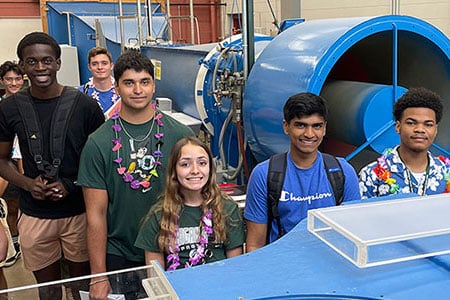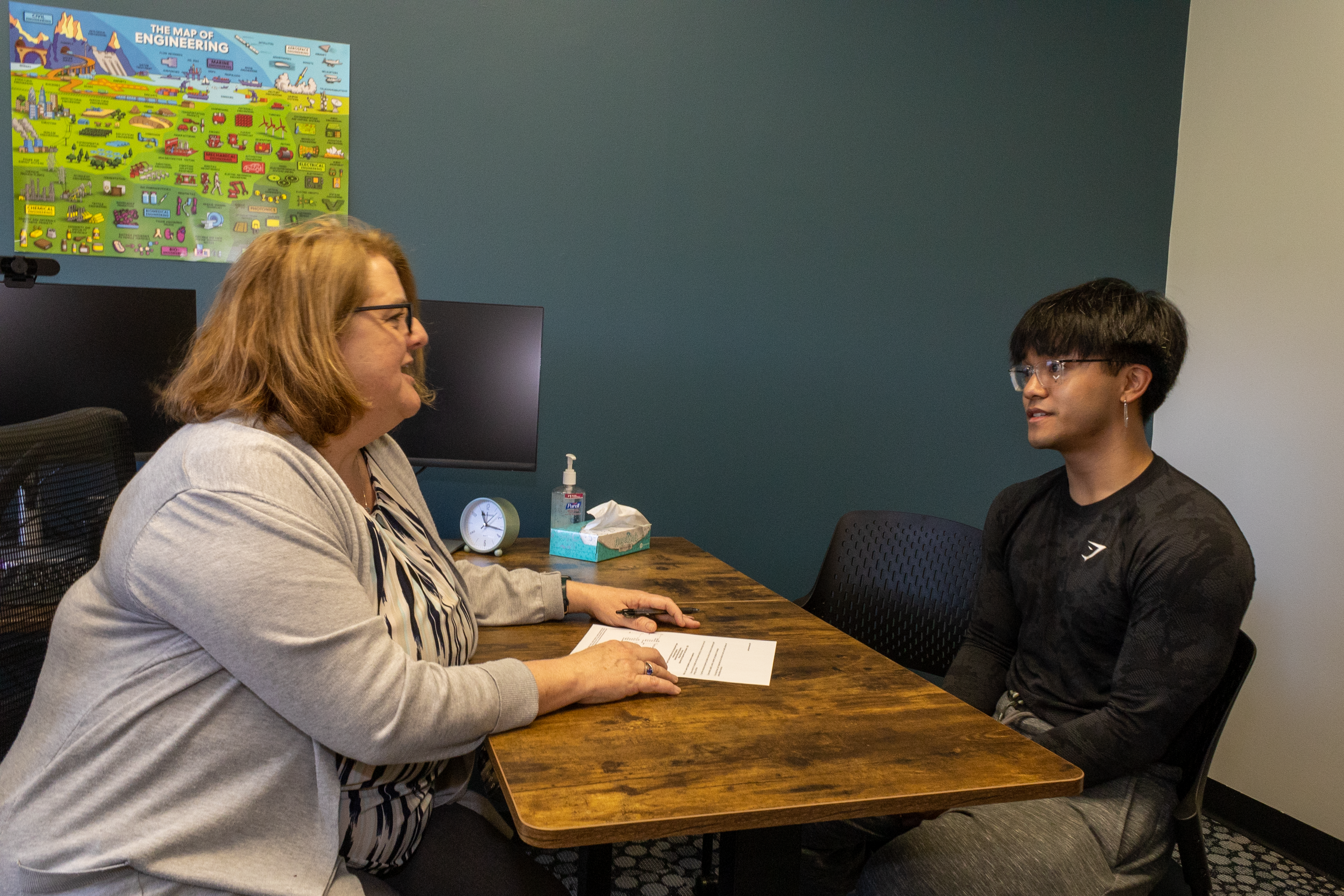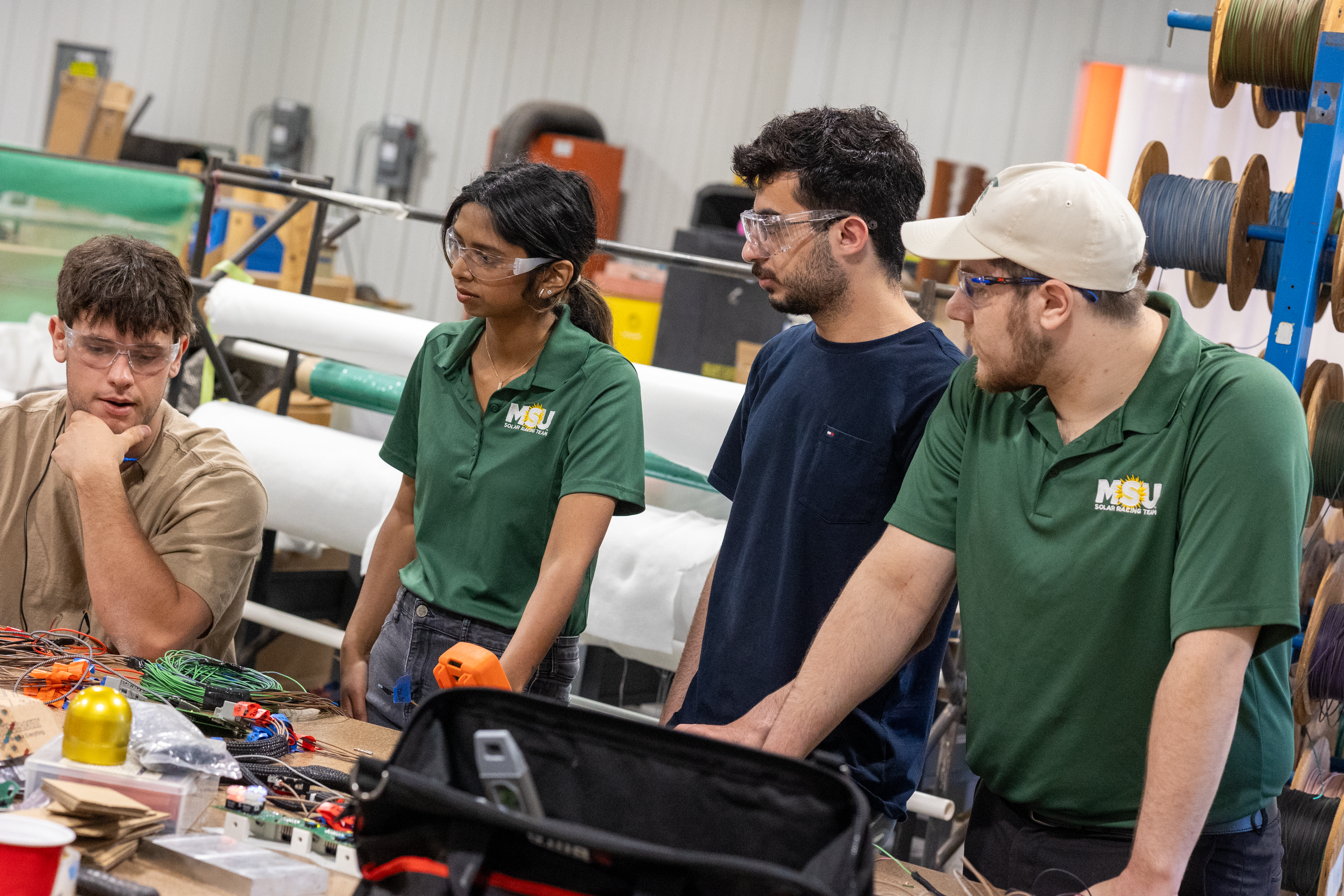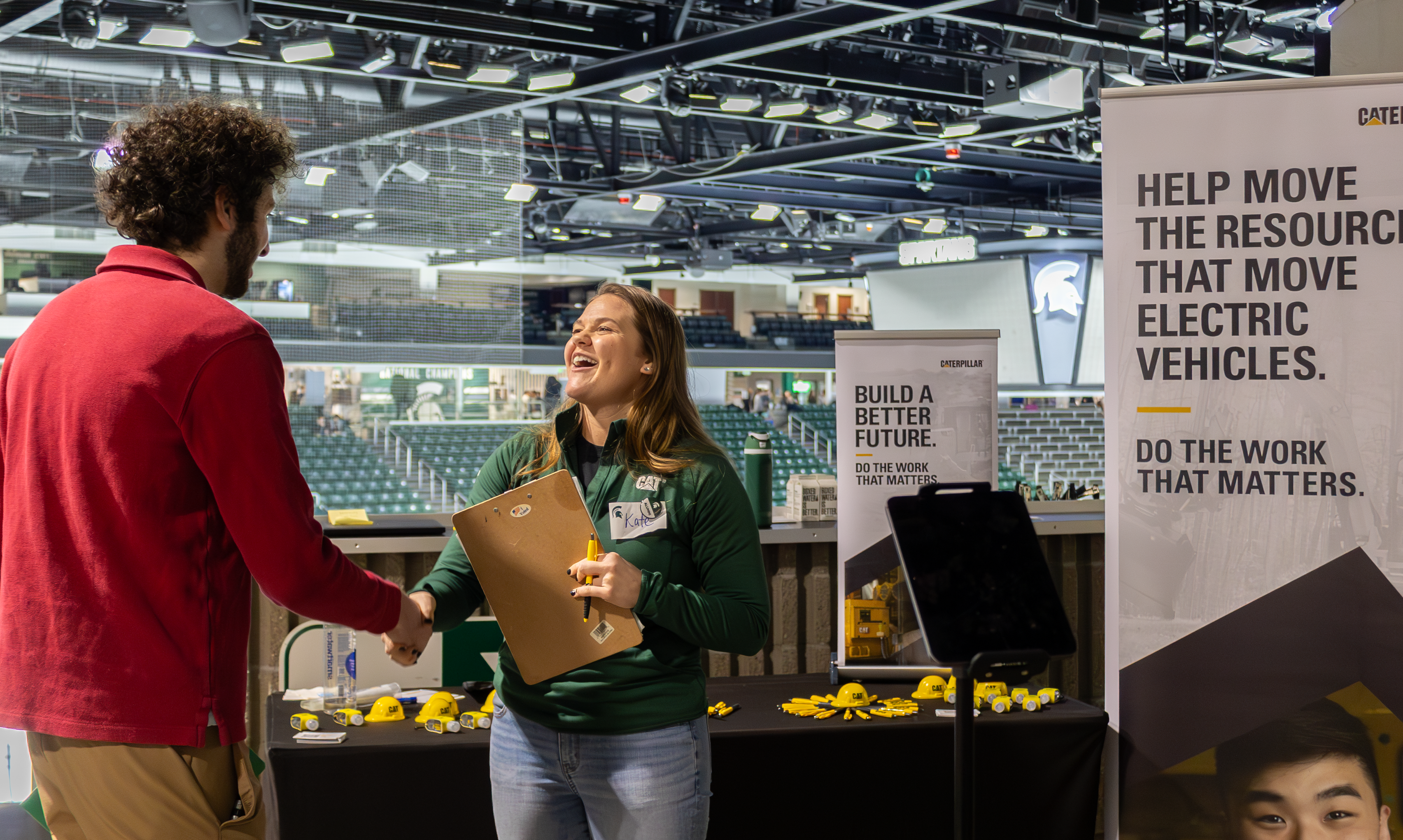A researcher at Michigan State University will use a National Science Foundation Faculty Early Career Development (CAREER) Award to tackle challenges in cloud-based vehicle control, sensing and privacy for the next-generation of connected and automated vehicles.

Zhaojian Li, an assistant professor of mechanical engineering, will use an almost $534,000 grant to integrate cloud and vehicle resources in the increasingly important areas of privacy and control of cloud-enabled automated vehicles. The five-year project began May 1.
"This project will develop fundamental research that addresses the major challenges in cloud-based control, collaborative sensing, decentralized optimization, and privacy preservation in connected vehicles," Li said. "The new designs and methodologies will offer a transformative framework to enable smarter, safer, and greener next-generation automotive systems."
Interim Mechanical Engineering Chair Tamara Reid Bush said NSF CAREER Awards are among the most competitive and prestigious faculty awards presented around the nation.
"They are an important recognition for junior faculty members and foreshadow our future academic leaders in their research area and in higher education," she said. "Mechanical engineering faculty have a strong interest and expertise in vehicle design and development - including self-driving vehicles. Dr. Li's work will significantly advance collaborative sensing and control, for not only existing vehicle platforms but also those of the future," she added.
Li said he hopes his research will advance transportation safety and energy efficiency.
"With the advent of 5G technology, cloud computing is expected to revolutionize automotive applications by providing "big data' and real-time, high-fidelity computing capabilities. Despite its promise, the use of cloud computing in automotive vehicle control and sensing still has limited success due to concerns in communication privacy and real-time constraints in many automotive systems," he explained.
"Our research is synergistic with key goals related to developing efficient, secure, and safe transportation systems. It involves several disciplines including control theory, machine learning, vehicle dynamics, and privacy preservation. Our multi-disciplinary approach will help facilitate the participation of underrepresented groups in research and positively impacts engineering education," he continued.
Among his goals, Li hopes to enhance vehicle control performance and ride comfort. That includes better road information - like black ice and potholes - without leaking vehicle privacy.
"Ideally, cloud-based vehicle controls will become more practical, accurate, and efficient for time-sensitive dynamical systems," he added.
Li joined MSU in 2017, after working at China's Shanghai Area Control Center as an air traffic controller, then interning at Ford Research and Advanced Engineering in Dearborn and the General Motors NextGen Powertrain Control Group in Milford. His research interests include robotics and autonomous vehicles, intelligent transportation systems, reinforcement learning, vehicle dynamics, and optimal control.
He received two degrees in aerospace engineering at the University of Michigan - a Ph.D. in 2015 and a master's degree in 2013. He received a B.E. in civil aviation from Nanjing University of Aeronautics and Astronautics in 2010.
Li is the 27th faculty member in the College of Engineering to receive an NSF CAREER Award since 2010 and the 17th in less than four years. NSF CAREER Awards support junior faculty who exemplify the role of teacher-scholars through outstanding research and education. It is among NSF's most prestigious honors.
Li's new NSF award is his third NSF grant recently. He is part of an MSU research team called Spartan SMART that is envisioning robots working side-by-side with people in apple orchards, operating rooms, assisted living facilities, and other spaces. Read more on Spartan SMART here.
Additionally, NSF is supporting collaborative research on gathering road information - such as black ice, potholes, and road roughness - by utilizing connected vehicles as mobile sensors while preserving privacy of the participating vehicles. More details are here.





